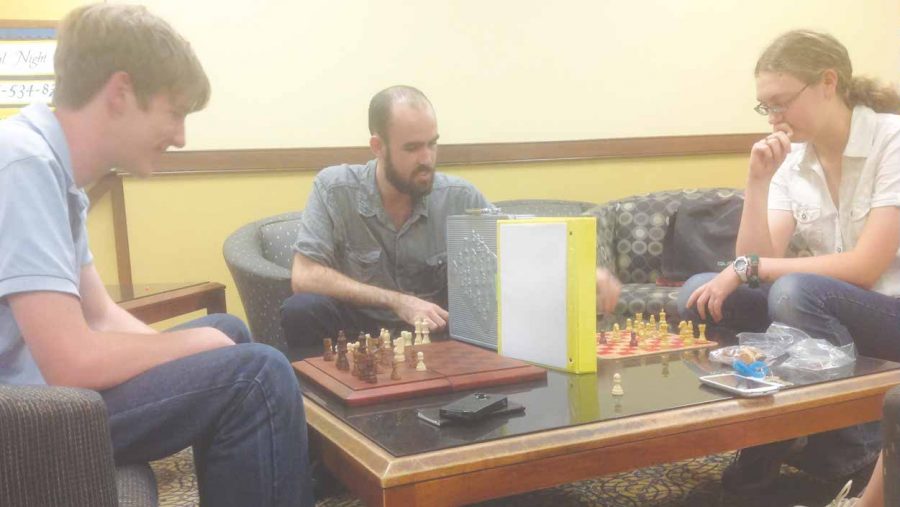From listening to audiobooks in the car to attending a European history workshop with graduates, Freshman William Barksdale’s love of history consumes his life. More recently, his hobby of chess has reaffirmed that love.
What began as a discussion with a classmate on the realities of war quickly became the basis for what he now calls “Fog-of-War Chess.”
“All pieces move the same way, but now they have a line of sight, so they can’t see the other set right away,” Barksdale said. “If you accidentally land on a piece or are blocked, you lose that piece, but get to see all pieces nearby. A huge part of the design is strategic sacrifice. It’s very much a cloak-and-dagger game.”
The most salient feature of the game is that it requires a third player to act as a judge, plus two boards divided by a screen. As players move around the board, the “fog of war” lifts when an opponent’s piece enters one of the player’s piece’s line of sight, with established radii that vary from piece to piece, with the knight having the highest.
“It is interesting to see two opponents figure out each others’ layout. They’ll think they’ve found everything when they really just made a full circle,” Jonas Salna, a UA junior, said.
Barksdale, who has previously called his game “Battleship Chess” and “Blind Man’s Chess,” has only played 11 full games and has seen seven more.
Barksdale has altered the rules slightly since the game’s inception, mostly just by asking people what makes it more fun. Salna, who came up with the name, has played five or six games, serving as both the judge and a player.
“Unless it has a special setup, it would be great as an electronic version, where there would still only be two people, but the computer could act as judge,” Salna said.
Though still primarily playing for fun, Barksdale has been investigating provisional patent law in case the market takes off for his game, which has so far tested eight players.
“It’s a bit optimistic, but I’ve taken steps. If all goes well, I’m excited. If not, it’s been a pleasant experience and a nice new way of thinking,” Barksdale said.









